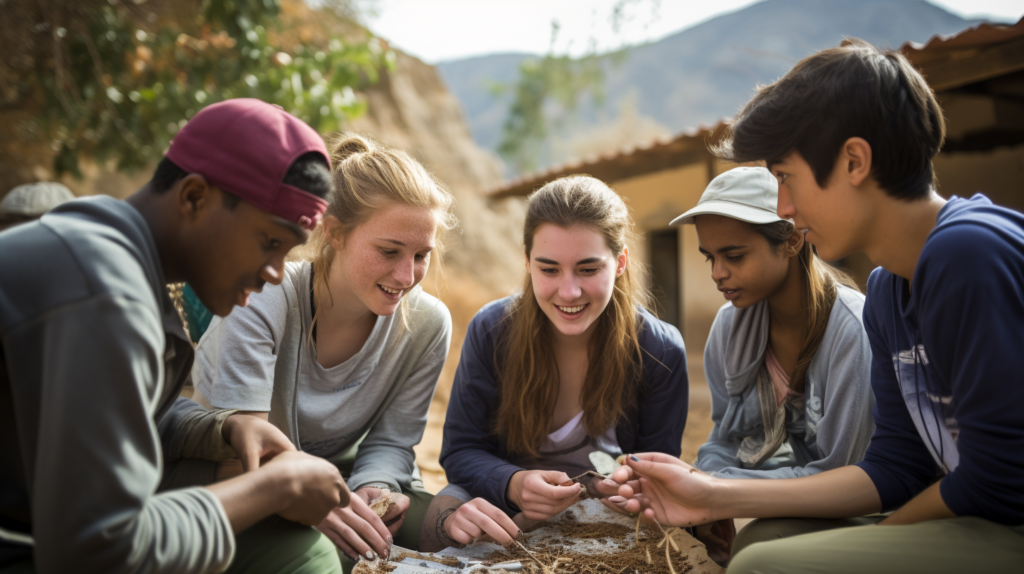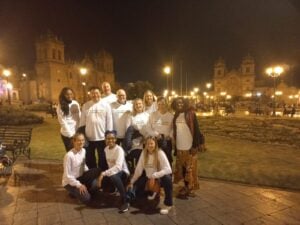Welcome, my friend! Have you ever considered embarking on a journey of self-discovery while making a positive impact on the world? If so, volunteering abroad can be a life-changing experience for students like you. Engaging in cross-cultural exchange through volunteer work not only allows you to contribute to meaningful causes but also opens doors to new perspectives, friendships, and personal growth.
In this article, we will explore the exciting world of cross-cultural exchange through volunteering. We’ll discuss the benefits of volunteering for students and provide practical tips on finding volunteer opportunities, preparing for your adventure, engaging in cross-cultural activities, developing valuable skills, and reflecting on your experiences.
So, let’s dive in and discover how you can embark on an incredible journey of cross-cultural exchange through volunteering!
Understanding Cross-Cultural Exchange
In this section, we will explore the concept of cross-cultural exchange and why it is important for students. Cross-cultural exchange refers to the interaction and exchange of ideas, values, and customs between individuals from different cultural backgrounds. It allows students to broaden their perspective, develop empathy, and gain a deeper understanding of other cultures.
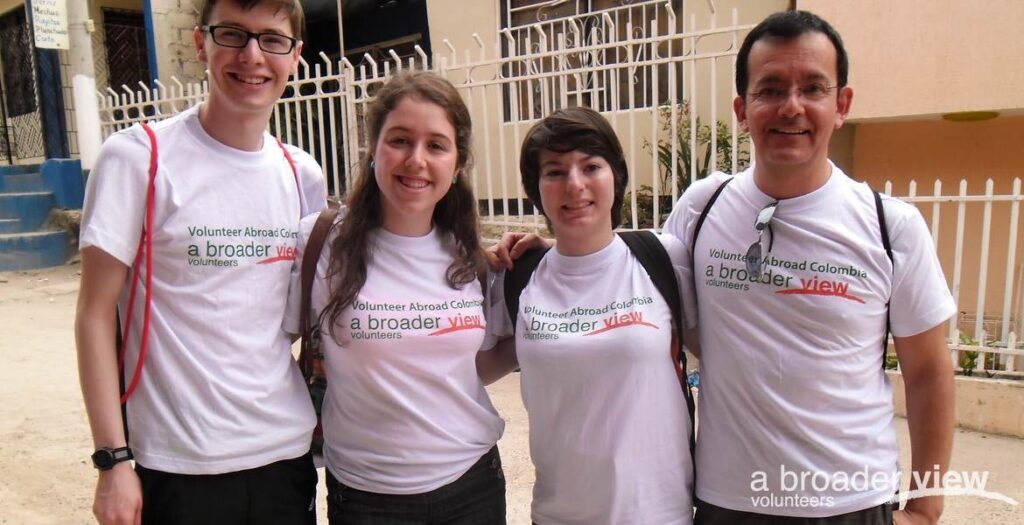
Definition and Importance
Cross-cultural exchange is about going beyond the surface level of cultural differences and understanding the underlying values and beliefs that shape a society. It involves engaging with people from different backgrounds, learning about their customs and traditions, and finding common ground. Some key points to understand about cross-cultural exchange are:
- Cultural diversity: Each culture has its own unique traditions, beliefs, and practices. Cross-cultural exchange promotes the appreciation and celebration of this diversity.
- Global citizenship: Engaging in cross-cultural exchange fosters the development of global citizenship. It helps students become more aware of global issues and encourages them to take action for positive change.
- Breaking down stereotypes: By interacting with individuals from different cultures, students have the opportunity to challenge stereotypes and misconceptions they may have. This can lead to a more inclusive and tolerant society.
- Enhancing communication skills: Cross-cultural exchange requires effective communication and active listening. Students can improve their communication skills by adapting to different cultural norms and learning to navigate cultural differences.
Benefits for Students
Participating in cross-cultural exchange can have numerous benefits for students. Some of these benefits include:
- Cultural competence: Students develop cultural competence by gaining knowledge about different cultures and learning to navigate diverse environments. This is a valuable skill in today’s interconnected world.
- Adaptability: Being exposed to different cultures helps students become more adaptable and flexible. They learn to embrace change and see it as an opportunity for growth.
- Empathy and perspective-taking: Interacting with individuals from diverse cultural backgrounds allows students to develop empathy and see the world from different perspectives. This leads to greater understanding and acceptance of others.
- Personal growth: Cross-cultural exchange challenges students to step out of their comfort zones and face new experiences. This can lead to personal growth and increased self-confidence.
- International career opportunities: As the world becomes increasingly globalized, employers value individuals with cross-cultural experience. Participating in cross-cultural exchange can open doors to international career opportunities.
In conclusion, understanding cross-cultural exchange is essential for students as it helps them develop a global mindset, become more culturally competent, and acquire valuable skills for the future. It promotes empathy, breaks down stereotypes, and creates a more inclusive and connected society. By engaging in cross-cultural exchange, students can broaden their horizons and make a positive impact in the world.
Finding Volunteer Opportunities
Finding volunteer opportunities, whether locally or internationally, requires some research and networking. Here are some tips on how to find the right volunteering opportunity for you:
Researching Local and International Organizations
- Start by researching local organizations in your community that focus on causes that interest you. Look for non-profit organizations, community centers, schools, or hospitals that may have volunteer programs.
- Expand your search to include international organizations that offer volunteer programs abroad. Look for reputable organizations that have a track record of making a positive impact in the communities they work with.
- Check if there are any local chapters or branches of international organizations in your area. They may have volunteer programs that allow you to work both locally and internationally.
Connecting with University Programs
- Many universities have programs that offer volunteer opportunities for students. These programs may facilitate volunteering locally or provide opportunities for students to travel abroad and engage in meaningful projects.
- Reach out to your university’s career services or student affairs office to inquire about volunteer programs they offer. They may have partnerships with organizations or can provide information on upcoming volunteer projects.
Utilizing Online Volunteer Platforms
- Online platforms have made it easier to connect volunteers with organizations around the world. Websites like VolunteerMatch, Idealist, and GoAbroad provide listings of volunteer opportunities both locally and internationally.
- Browse through these platforms to find volunteer projects that align with your interests and availability. Read reviews and testimonials from past volunteers to get an idea of the organization’s reputation and the quality of the experience they provide.
Remember, finding the right volunteer opportunity is not just about the destination or the organization. It’s important to align your skills, interests, and values with the project to ensure a meaningful and fulfilling experience. Take the time to research and explore different options before committing to a specific volunteer program.
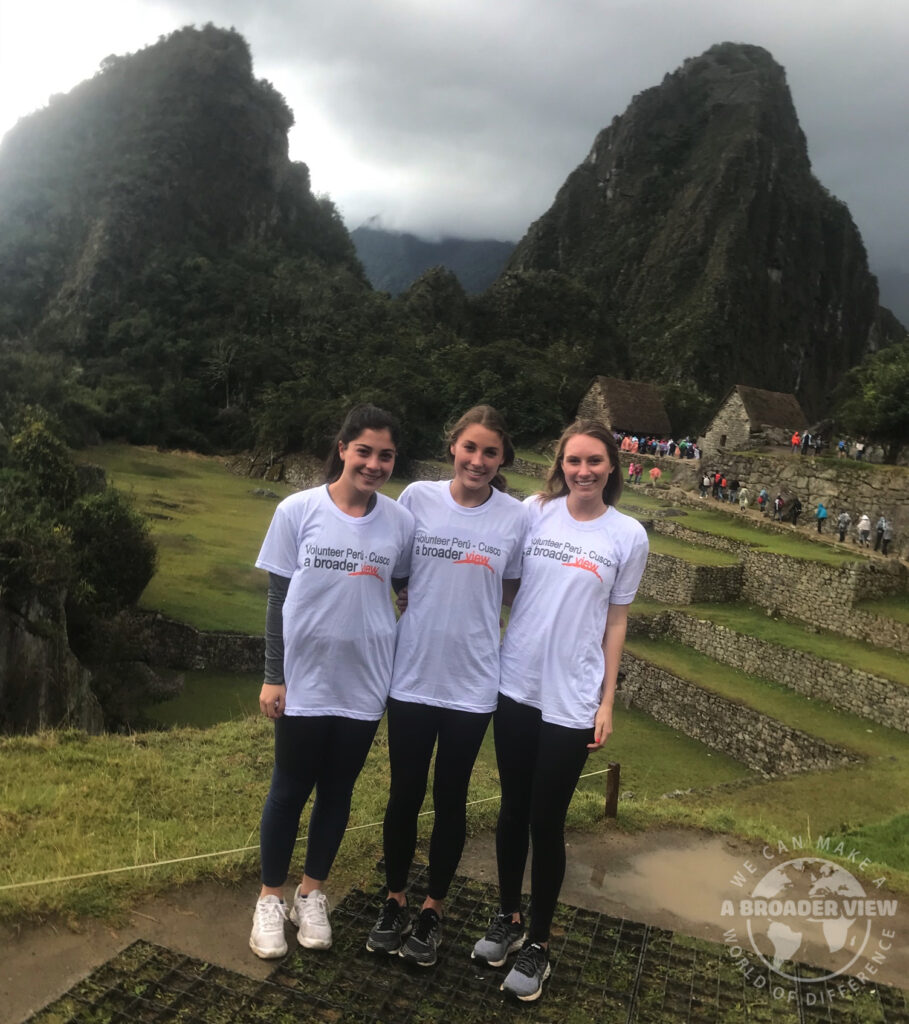
Preparing for Volunteering Abroad
Are you considering volunteering abroad? It’s a wonderful experience that can broaden your horizons and provide valuable opportunities for personal growth. However, before embarking on this adventure, it’s essential to properly prepare yourself. Here are some important steps to take before volunteering abroad:
Researching the Host Country and Culture
Before heading to a new country, it’s crucial to familiarize yourself with the host country’s culture, customs, and traditions. This will help you navigate daily life and understand the cultural context in which you’ll be volunteering. Consider the following:
- Learn about the country’s history, geography, and political climate.
- Research the local customs and etiquette to avoid unintentionally offending anyone.
- Understand the cultural norms and practices related to communication, dress, and social interactions.
Learning Basic Language Skills
While it’s not necessary to become fluent in the local language, learning some basic phrases can greatly enhance your experience and make your interactions more meaningful. Here are a few tips:
- Start by learning common greetings, thank you, please, and basic phrases related to everyday activities.
- Practice pronunciation and vocabulary through online resources, language learning apps, or language exchange programs.
- Consider taking language classes or hiring a tutor if you want to dive deeper into the language.
Understanding the Local Customs and Traditions
To fully immerse yourself in the culture and connect with the local community, it’s important to be aware of and respect the local customs and traditions. Here’s what you can do:
- Observe the locals and follow their lead in terms of behavior, dress, and social interactions.
- Be open-minded and adapt to different cultural practices, even if they differ from what you are used to.
- Seek guidance from locals or experienced volunteers on cultural do’s and don’ts.
By taking the time to research the host country, learn basic language skills, and understand the local customs and traditions, you’ll be better prepared to navigate the cross-cultural experience of volunteering abroad. This will allow you to form deeper connections with the local community and make a more meaningful impact during your time abroad.
“To truly connect with a culture, you must first take the time to understand and appreciate it.”
Engaging in Cross-Cultural Activities
Engaging in cross-cultural activities is an exciting and enriching experience that allows students to fully immerse themselves in a different culture while volunteering. It goes beyond just participating in activities and events; it involves actively seeking opportunities to connect with locals, learn about their customs and traditions, and broaden one’s perspective. If you’re considering volunteering abroad, here are some ways to engage in cross-cultural activities and make the most out of your experience:
Participating in Cultural Workshops and Classes
One of the best ways to engage in cross-cultural activities is by participating in cultural workshops and classes. These activities provide a structured environment where you can learn about the local culture, art, music, dance, and more. By actively participating in these workshops, you can gain a deeper understanding of the cultural practices and even develop new skills.
For example:
- Take part in a cooking class to learn how to prepare traditional dishes from the host country.
- Join a language class to learn the basics of the local language and be able to communicate with locals more effectively.
- Attend a traditional dance workshop to learn the moves and rhythms of the local dances.
Exploring Local Festivals and Events
Attending local festivals and events is an excellent way to immerse yourself in the host country’s culture. These events often showcase traditional music, dance, food, and art, giving you a firsthand experience of the local customs and traditions. Make sure to research and mark the dates of upcoming festivals and events in the area you’ll be volunteering in, and plan to attend as many as possible.
Here are some ideas on how to make the most of local festivals and events:
- Wear traditional clothing to fully immerse yourself in the celebrations.
- Try the local cuisine and indulge in traditional dishes.
- Participate in traditional dances and games.
- Interact with locals and learn about the significance of the festival or event.
Living with a Host Family
One of the most immersive ways to engage in cross-cultural activities is by living with a host family. When you live with a local family, you get a unique opportunity to experience their way of life, their traditions, and their daily routines. It allows you to form genuine connections with locals and gain a deep understanding of their culture and customs.
Living with a host family offers several benefits, such as:
- Learning the language faster by practicing with native speakers.
- Trying authentic home-cooked meals and experiencing local cuisine on a daily basis.
- Participating in family activities and celebrations.
- Building close relationships with your host family and feeling like a part of their community.
Engaging in cross-cultural activities while volunteering can greatly enhance your overall experience. It allows you to develop a deeper connection with the local community, gain a better understanding of their culture, and broaden your perspective on the world. So, make sure to actively seek out these opportunities during your volunteer abroad journey and make the most out of your time in a different culture.
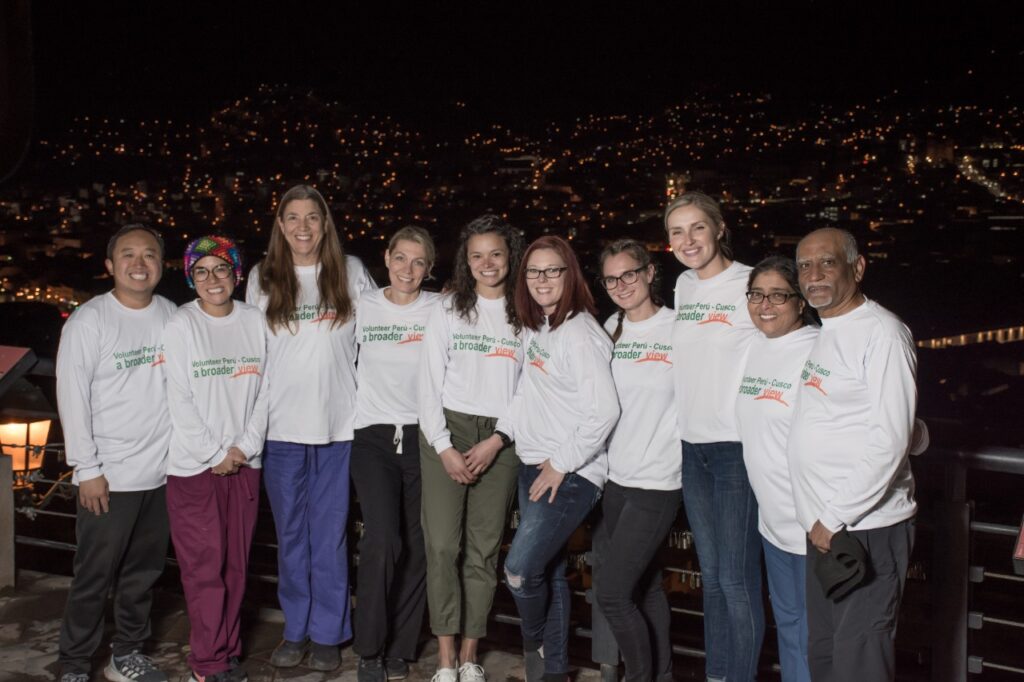
Developing Skills and Building Connections
When it comes to volunteering abroad, it’s not just about making a difference in the community you’re serving. It’s also an incredible opportunity for you to develop valuable skills and build meaningful connections with people from different backgrounds. Here are some ways in which volunteering can help you develop skills and create lasting connections:
Gaining Cultural Competence and Adaptability
Volunteering in another culture exposes you to different ways of thinking and living. It challenges your preconceived notions and encourages you to see the world from different perspectives. This experience can significantly enhance your cultural competence and adaptability skills, which are highly valued in today’s globalized world. Being able to navigate diverse cultural environments with ease and respect is not only beneficial for personal growth but also for professional success.
Improving Language and Communication Skills
Volunteering abroad often means interacting with locals who may speak a different language. This presents a fantastic opportunity for you to improve your language and communication skills. Immersing yourself in a foreign language environment forces you to practice speaking and listening skills on a daily basis. You’ll learn new vocabulary, idioms, and even slang that may not be taught in a classroom setting. These enhanced language skills will not only impress future employers but also open doors to international job opportunities in the future.
Building Global Networks
Volunteering abroad connects you with like-minded individuals from all around the world. You’ll meet fellow volunteers, local community members, and professionals working in the field. These connections can become lifelong friendships and even lead to future job opportunities. Building your global network through volunteering allows you to tap into a diverse pool of resources and expertise. You never know when a connection made during your time abroad might prove to be invaluable in the future.
In addition to gaining skills and building connections, volunteering abroad provides you with a unique chance to contribute to a cause you’re passionate about while making a positive impact on the community you’re serving. It’s a win-win situation that offers personal and professional growth opportunities.
“Volunteering abroad can be a transformative experience that helps you develop a global mindset and gain valuable skills that will benefit you in both your personal and professional life.”
Reflecting on the Experience
Volunteering abroad is an exciting and transformative experience that can have a profound impact on your personal growth and development. After participating in a cross-cultural exchange program, it is important to take the time to reflect on your experience and gain valuable insights. Here are some ways to reflect on your volunteering experience:
Journaling and Self-Reflection
One of the most effective ways to reflect on your experience is through journaling and self-reflection. Take some time each day to write down your thoughts, feelings, and observations about your volunteer work and interactions with the local community. Use your journal as a tool for self-discovery and processing your emotions and experiences. Reflecting on your thoughts and actions can help you gain a deeper understanding of yourself and the impact you have had on others.
Sharing Experiences with Peers
Another great way to reflect on your volunteer experience is by sharing your experiences with your peers. Organize a group discussion or participate in a post-program debriefing session with your fellow volunteers. Share your highs and lows, challenges and triumphs, and the lessons you learned along the way. Hearing different perspectives and experiences can provide new insights and allow you to see your own experience from a different angle.
Understanding the Effect on Personal Growth
Volunteering abroad can be a life-changing experience and can have a significant impact on your personal growth. Take the time to understand and reflect on how your cross-cultural exchange has transformed you as an individual. Consider the skills and qualities you have developed, such as empathy, adaptability, and cultural competence. Reflect on the challenges you faced and how you overcame them. Recognize the personal growth and positive changes you have experienced as a result of your volunteer work.
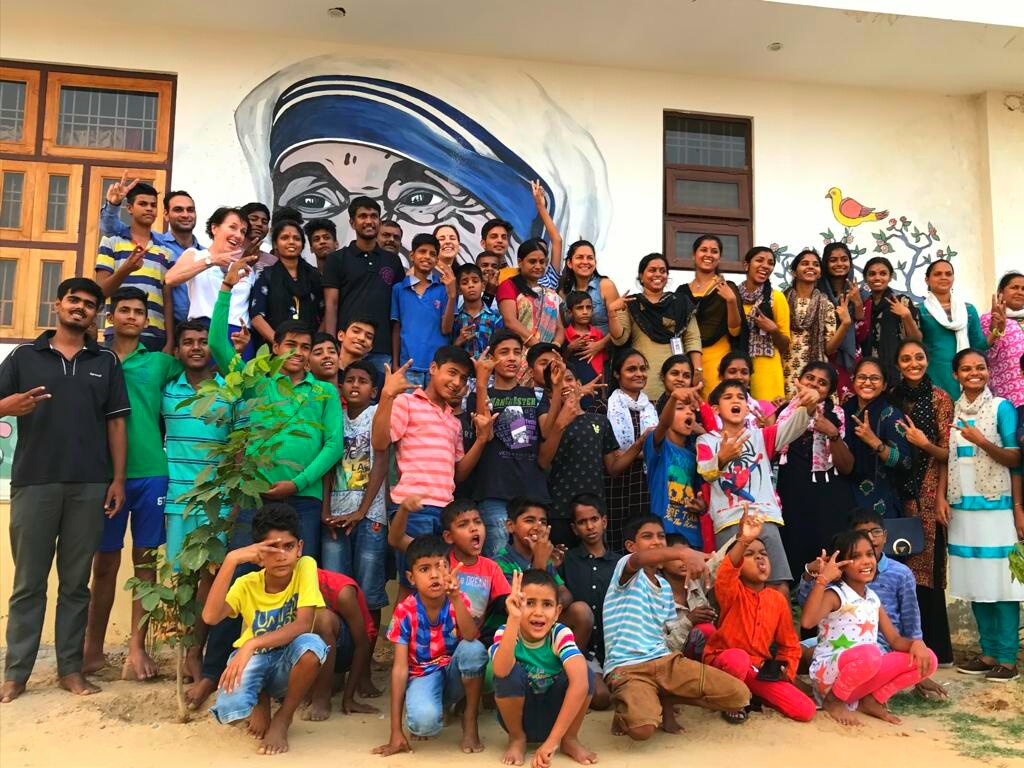
Reflecting on your cross-cultural exchange experience can help you gain a deeper understanding of yourself, the world, and the impact you can have on others. It allows you to process your emotions, gain valuable insights, and appreciate the growth and transformation you have undergone. Take the time to reflect, appreciate, and celebrate your volunteer experience and the positive impact it has had on your life.
“Through reflection and self-examination, we come to understand our experiences and their significance. This process can help us grow and learn from our past, shaping our future actions.”
Conclusion
In conclusion, volunteering for cross-cultural exchange is an incredibly enriching experience for students. It allows them to step outside of their comfort zones, explore new cultures, and make a positive impact on communities around the world. By participating in cross-cultural activities, students can develop valuable skills, gain global perspectives, and build meaningful connections.
Throughout this article, we have explored the definition and importance of cross-cultural exchange, the benefits it offers to students, and how to find volunteer opportunities. We have also discussed the importance of preparation before volunteering abroad and engaging in cross-cultural activities.
By participating in cultural workshops, exploring local festivals, and living with host families, students can fully immerse themselves in the local culture and gain a deeper understanding of the community they are serving.
Volunteering for cross-cultural exchange also provides students with the opportunity to develop a range of skills, including cultural competence, adaptability, language and communication skills, and the ability to build global networks.
Furthermore, reflecting on the experience through journaling, sharing experiences with peers, and understanding the effect on personal growth allows students to internalize the lessons learned and apply them to their future endeavors.
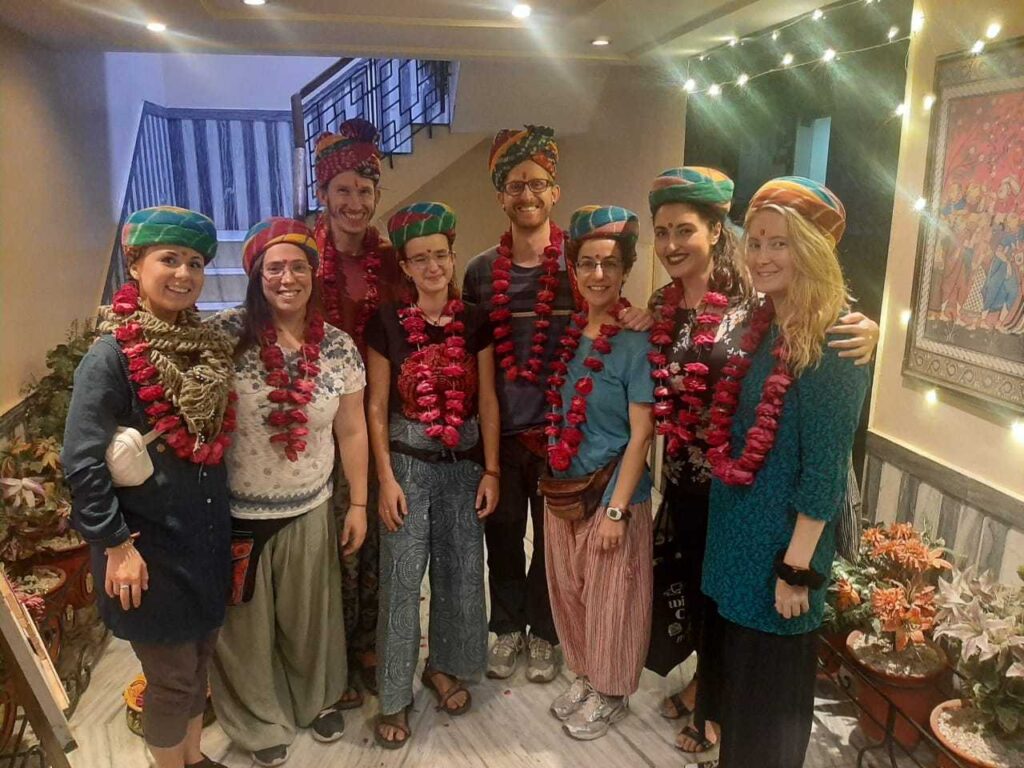
Overall, volunteering for cross-cultural exchange is a transformative experience for students. It not only allows them to contribute to communities in need but also helps them develop personally and professionally. It opens doors to new perspectives, expands their horizons, and prepares them to be global citizens in an increasingly interconnected world. So, why not embark on a cross-cultural volunteering adventure and create memories that will last a lifetime?
Frequently Asked Questions
- What are the benefits of volunteering for students?
Volunteering for students offers numerous benefits such as developing valuable skills, gaining practical experience, building a strong resume, expanding social networks, fostering personal growth, and making a positive impact on the community.
- Can students volunteer internationally?
Yes, students can volunteer internationally. There are various organizations and programs that facilitate cross-cultural volunteer opportunities for students, allowing them to explore different countries, learn about diverse cultures, and contribute to meaningful projects abroad.
- What types of volunteer projects are available for students?
There are a wide range of volunteer projects available for students, including community development, education, healthcare, environmental conservation, disaster relief, animal welfare, and more. Students can choose projects based on their interests and skills.
- How can volunteering abroad enhance a student’s education?
Volunteering abroad enhances a student’s education by providing a hands-on learning experience, exposing them to new perspectives, enhancing cultural awareness, developing intercultural communication skills, and fostering a global mindset.
- Are there any financial assistance options available for students volunteering abroad?
Yes, there are financial assistance options available for students volunteering abroad. Some organizations offer scholarships, grants, or fundraising support to help students cover the expenses associated with volunteering abroad, including travel, accommodation, and program fees.
-
Safe Solo Volunteering Abroad | Empowerment FemalesThrough Service with ABV

Embrace the adventure of a lifetime with ABV’s supported solo volunteering programs. Create lasting friendships, make a real difference, and explore the world safely under a supportive umbrella. Recommend Peru, Ecuador, Colombia, and more. Table of Contents Introduction to ABV and Solo Volunteering Traveling solo can be a thrilling yet daunting endeavor. A Broad View…
-
Empowerment Through Sustainable programs: Volunteer Opportunities in Peru Cusco
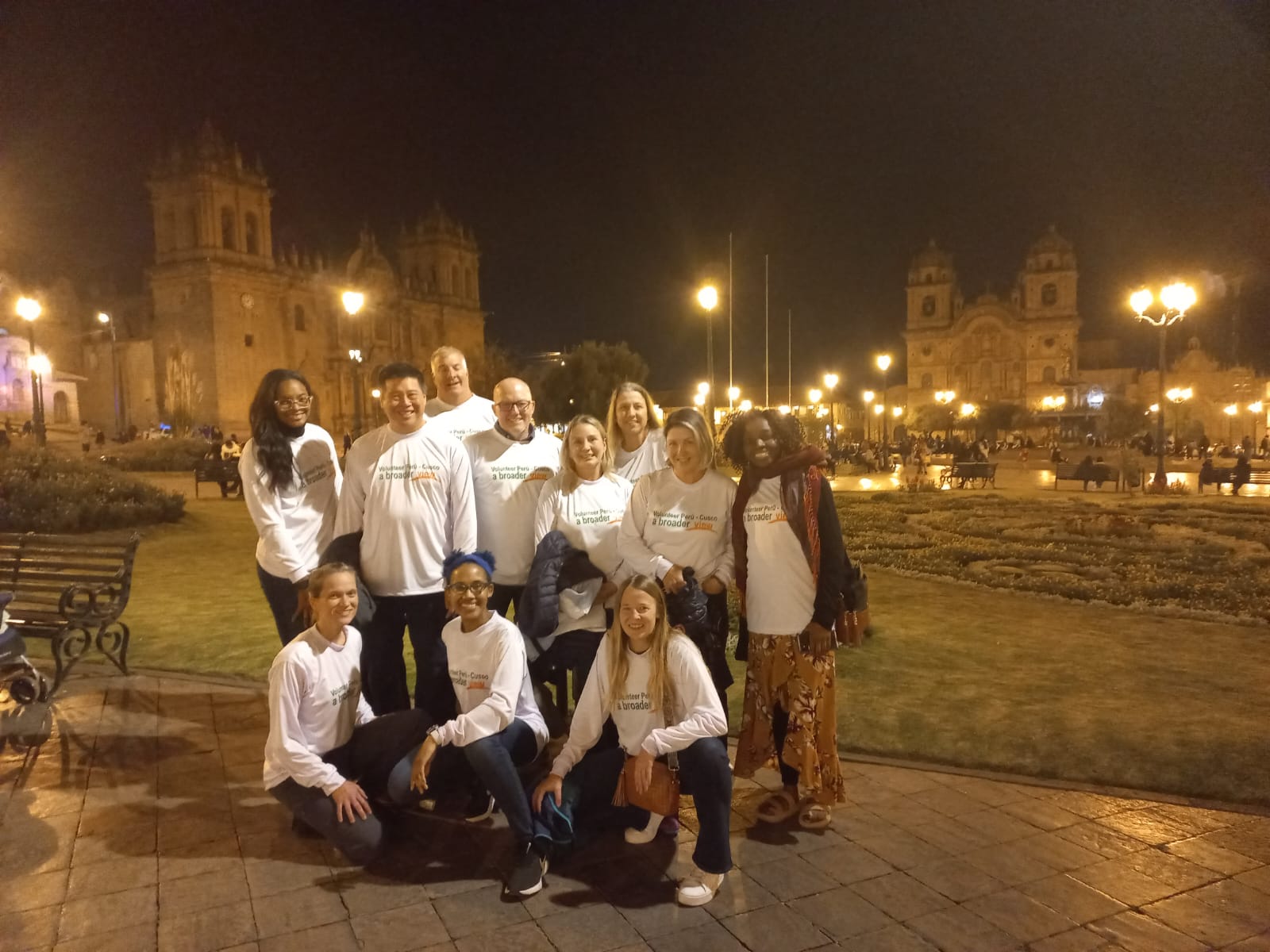
Discover empowering volunteer opportunities in Peru Cusco with www.abroaderview.org. Support sustainable programs and make a positive impact while gaining valuable experiences.
-
Midwives & Obstetricians: Empower Mothers & Babies Abroad

Discover how midwives and obstetricians from abroad can empower mothers and babies through the programs offered by www.abroaderview.org. Make a difference today.

